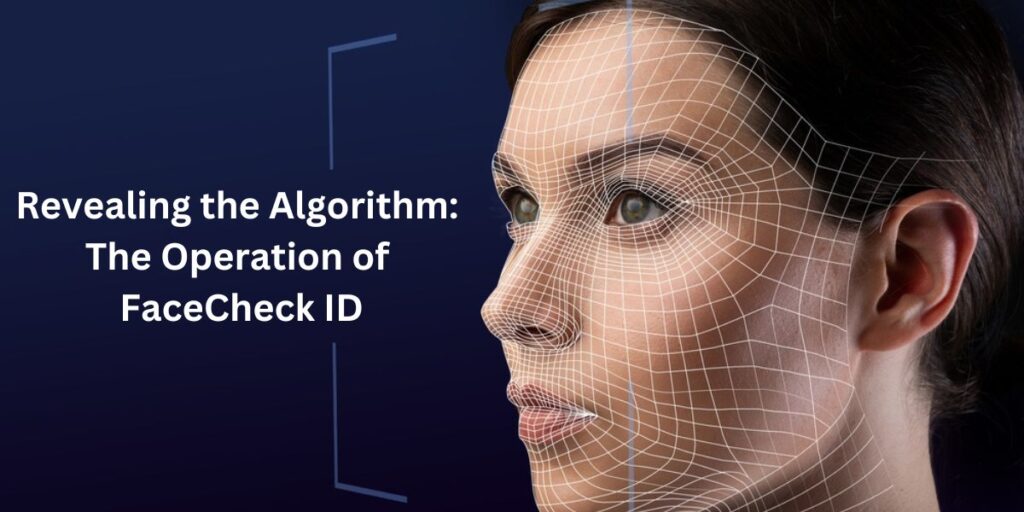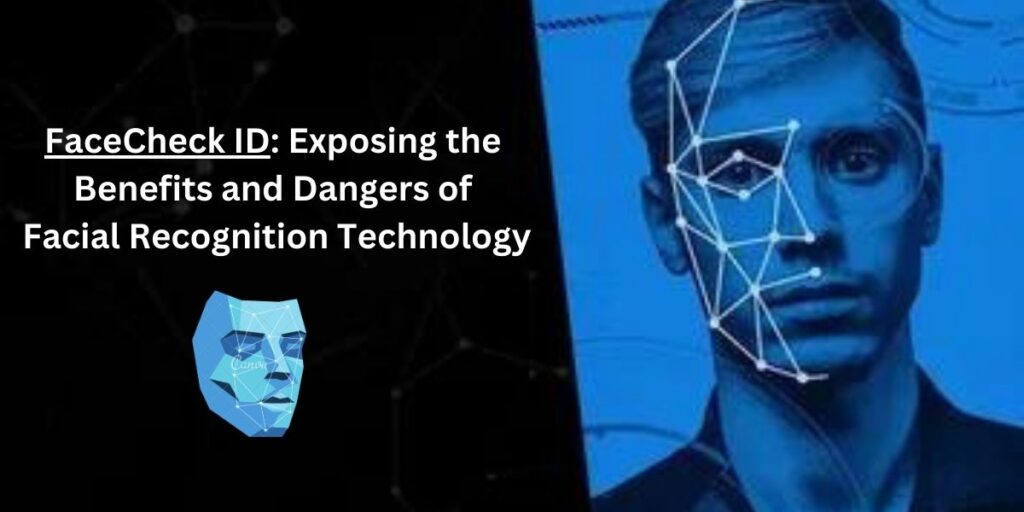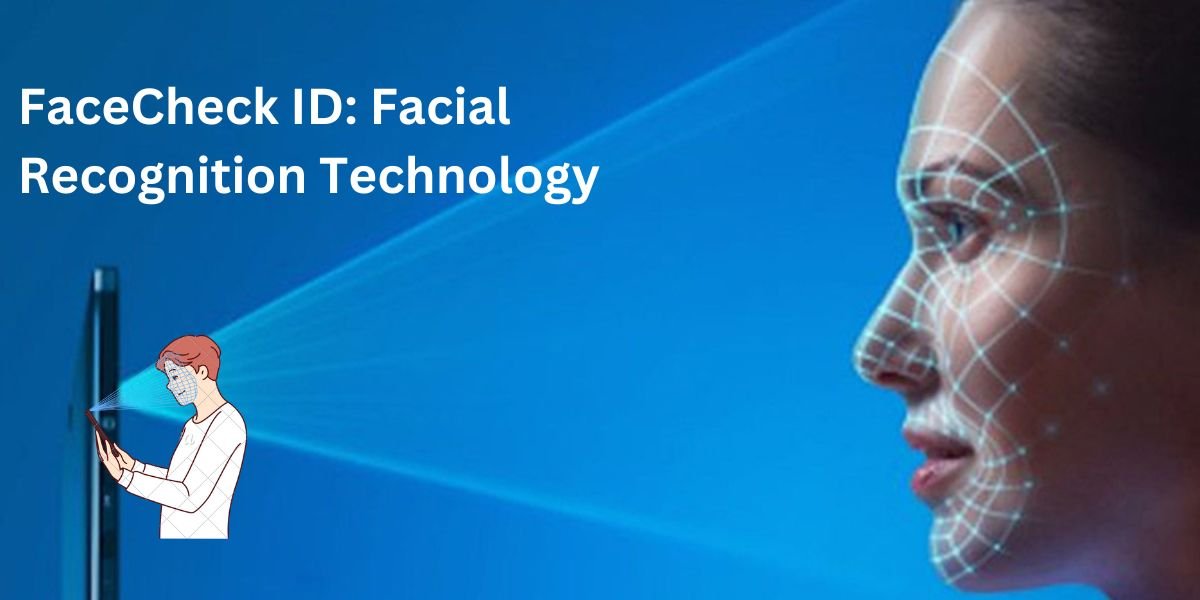With FaceCheck ID, a face recognition search engine that offers real-time identity scans, you can embrace the future of digital verification. Upload an image to let the AI loose and reveal the private lives hiding behind internet personas. FaceCheck ID promises simplicity, from confirming dates to revealing scams including catfishing, yet rumours of discriminating biases and privacy issues persist. Join the discussion as we navigate the moral minefield that this powerful technology presents, where monitoring collides with security and the algorithm’s scrutiny destroys anonymity.
What is FaceCheck ID
FaceCheck ID is a digital detective that uses facial recognition technology to identify people in pictures. Upload an image, and its Artificial Intelligence army searches through millions of online portraits, including public photos and social media accounts. Its objective? To expose possible matches, validating online dates, revealing catfishing frauds, or even supporting law enforcement. However, beware—this convenience comes with a price. We wonder if FaceCheck ID is a privacy predator or a security champion due to worries about privacy, algorithmic prejudice, and the unsettling possibility of ongoing surveillance.
The FaceCheck ID technology is as follows:
An algorithm for facial recognition:
Mapping Facial Features: The AI measures the distances between the eyes, nose, mouth, jawline, and cheekbones, among other important facial features.
Creating a “Facial Signature”: This distinct identity captures the geometric proportions and spatial correlations between facial features, much like a fingerprint does for the face.
Machine Learning: By continuously improving its capacity to identify and match faces, the algorithm is trained on enormous datasets of labelled faces.
Capabilities for databases and searches:
Huge Image Collection: According to FaceCheck ID, it is possible to obtain billions of photographs from public domains, social media platforms, and other internet sources.
Reverse Image Search: To identify possible matches, the uploaded photo’s facial signature is compared to this enormous database.
Confidence Scores: Based on how similar two matches are to one another, a confidence score indicates how confident the results are.
Further Technology-Related Considerations:
Image Quality: Frontal views of faces captured in crisp, well-lit photographs usually produce superior results.
Accuracy: Despite FaceCheck ID’s high accuracy claims, results can be affected by ageing, accessories, and facial expressions.
Updates: To increase accuracy and grow the image repository, the database and algorithm are probably updated on a regular basis.
Moral Aspects to Take into Account:
Algorithmic Bias: There has been evidence in the past that facial recognition technology is biassed, possibly misidentifying members of marginalised groups, which raises questions about justice and injustice.
Data Collection and Privacy: Using publicly accessible photos without express permission gives rise to privacy concerns and demands that data collection procedures be made transparent.
Possibility of Surveillance: Since facial recognition software is so widely available, there is a risk that identity and privacy will be compromised.
Revealing the Algorithm: The Operation of FaceCheck ID

FaceCheck ID is essentially a face-based reverse image search engine. When users upload a photo, the AI searches its database for possible matches. The system maps the distances between important face features, such as the nose, jawline, and eyes. After comparing this distinct “facial signature” to millions of previously saved profiles, a list of possible matches is produced and sorted by confidence score.
Applications and Advantages: From Fraud Detection to Personal Safety
FaceCheck.ID promotes its usefulness in several situations. Employers can use criminal databases to screen job candidates, individuals can confirm the authenticity of online dating profiles, and organisations can increase security by detecting unapproved staff. Law enforcement organisations believe that locating missing people or identifying suspects has potential. Furthermore, the site states that by revealing phoney personas, it fights online fraud and catfishing.
Privacy Paradox and Ethical Issues
FaceCheck ID is unquestionably convenient, but it also raises ethical questions regarding data protection and potential abuse. According to reports, the platform’s database contains billions of profiles that are derived from publicly accessible photos on the internet and social media. This calls into question transparency and consent. Users may not be aware that their image is a part of the scannable landscape, which could lead to moral and legal quandaries.
Moreover, facial recognition software is biassed by nature and frequently fails to correctly identify women and people of colour. This might make already-existing socioeconomic disparities worse and encourage discriminatory behaviour. Another reason to be concerned is the possibility of profiling and monitoring, which might lead to a society akin to a panopticon where our faces serve as digital ID cards that are continuously monitored and examined.
Controlling the Algorithm: Finding Harmony
The popularity of FaceCheck ID emphasises how urgently strong laws governing facial recognition technologies are needed. In order to guarantee user permission and control over their biometric information, governments must enact explicit norms on data collection, storage, and use. To keep an eye on procedures and deal with any biases in algorithms, independent oversight organisations are essential.
People have a part to play in preserving their privacy as well. It’s important to exercise caution when sharing photos online and to choose sites carefully when using facial recognition software. Demanding transparency from digital corporations is essential, as is holding them responsible for moral data practices.
Beyond the Catchphrase: A Prospect for Conscientious Acknowledgment
FaceCheck ID has enormous potential to improve security and verification, as does face recognition technology in general. But this authority needs to be used carefully, with strict measures in place to preserve privacy and stop discriminatory actions. To make sure that this technology is a tool for good rather than a spark for a dismal future, there must be open communication, ethical development, and strict controls.
Finally, some thoughts:

FaceCheck ID is a microcosm of modern technical innovation and moral dilemmas. It is a strong tool with a variety of uses, but its advantages must be balanced against the dangers of abuse, bias, and deterioration of privacy. The discourse surrounding facial recognition technology is far from concluded, and it is incumbent upon developers, politicians, and individuals to negotiate this intricate terrain with a dedication to constructing a future in which technology empowers rather than abuses.













